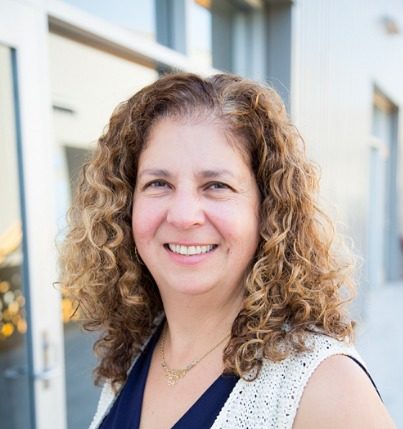Last week, Dr. Ana Ponce, the CEO of Camino Nuevo Charter Academy, was inducted into the Charter School Hall of Fame, one of the highest honors from the National Alliance for Public Charter Schools. Dr. Ponce runs a network of charter schools that serve over 3,600 pre-K through 12th grade students in and around the MacArthur Park neighborhood of Los Angeles. As the daughter of Mexican immigrants and the first in her family to attend college, she has been committed to improving the quality of education in the community that she grew up in.
At Camino Nuevo Charter Academy, 90 percent of students who start as freshmen graduate upon completion of their senior year. Approximately 70 percent of those students are accepted to four-year colleges. It’s an organization that sets the bar high for student performance.
In delivering her remarks during the National Charter Schools Conference in Austin, Texas, Dr. Ponce shared her story of crossing the U.S.-Mexico border as an undocumented child and spending time in detention.
La Comadre asked her why she felt compelled to share her story at the Charter School Hall of Fame.
“I am outraged at how we have addressed the needs of children at our borders, from our unaccompanied minors to now separating children from their parents. Great countries do not torture children, they protect them and do the best they can to ensure their physical and emotional safety. It is unacceptable that over 2,500 have been separated from their parents and most of them remain in custody. Now the government is inflicting serious trauma on these children, depriving them from any comfort when they are ripped away from their parents’ arms. This is inhumane,” Dr. Ponce said.
“I was inspired to speak out by the courage and resolve of parents who are risking their lives so that their children can have a better life in the U.S. I also wanted to share my own experience and the trauma I still live with after spending a night in a detention center as child. I remember being in the San Ysidro detention center with my Tia Socorro. It was a cold place, and we did not have more than a light sweater. I remember being hungry and not getting anything to eat. I remember being afraid as more people were brought in and the guards became more and more aggressive. I remember people writing phone numbers on their body because they were stripped of everything they had except the clothes they were wearing. It was a horrible experience, but I was not alone, I had my Tía with me. I stayed close to her, she practically held me the whole time until we got off the bus in Tijuana the next morning. This happened almost 40 years ago, and I can still remember the smell and the feel of the detention center,” she added.
Dr. Ponce feels that educators need to stay informed about current events and how those events impact their students. Deportations of family members can have long-term harmful effects on a child’s well-being. Between 2009 and 2013, half-million parents of children who are American citizens may have been deported, and behavioral problems can arise because of the depression and anger that children experience being separated from a parent.
“During these times, it is critical that educators create a safe space for children, which means validating the fears and anxieties children bring to the classroom and being prepared to constructively redirect for support if needed. We need to be mindful, that while the children in classrooms today may not personally have that experience, they may have a sibling, cousin, or a friend who was separated from their child and is now alone in a detention center,” Dr. Ponce said.
La Comadre congratulates Dr. Ponce for the recognition that she received at the Charter School Hall of Fame Induction and is proud that she used her platform to raise awareness of the plight of families who are at the border and in detention centers.
Adriana Maestas
She has worked in the non-profit sector, in the K-12 system, and in higher education in various capacities. When she's not writing stories or working on media projects, Adriana trains instructors to teach online at the University of California, Irvine.
She holds a bachelor’s degree in political science from the University of California, Irvine and a master’s degree in public policy from Claremont Graduate University.

